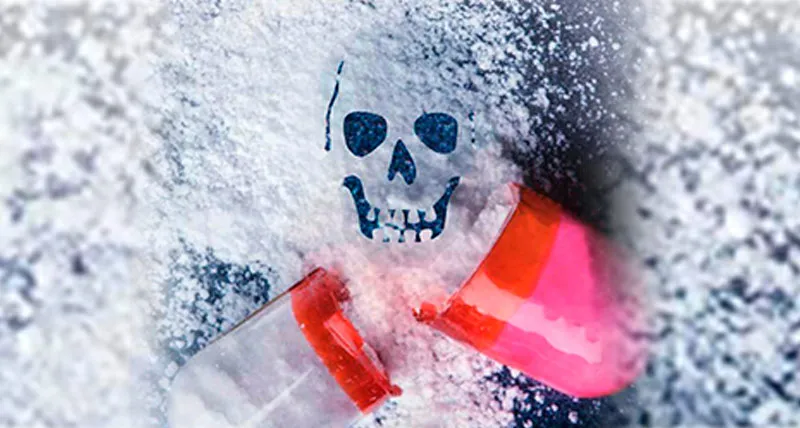As the number of people diagnosed with diabetes continues, the products that are illegally marketed that promise to prevent, treat and even cure diabetes, are flooding the market.
The United States Food and Medicines Administration (FDA in English) is recommending consumers not to use such products, for several reasons.
For example, some products could contain harmful ingredients, or be dangerous, or perhaps they are incorrectly marketed as free sales products when they should be sold as products that require medical recipe.
These illegally marketed products have additional risks if they motivate people to delay or leave effective diabetes treatments.Without the proper management of the disease, people with diabetes have greater risks of developing serious health complications.
More than 29 million people in the United States have diabetes, including about 7 million that have not been diagnosed, according to disease control and prevention centers.Millions of people have pre-diabetes, which means that they have higher levels of sugar than normal in the blood and can reduce their risks of developing diabetes through healthy changes in their lifestyle, including diet and exercise.
"People with chronic or incurable diseases may feel desperate and become easy dams. False products for diabetes are particularly alarming, since there are effective options available to help handle this serious disease instead of exposing patients to products to productsApproved and excessively risky, "said Jason Humbert, commander of the Public Health Service of the United States, of the Office of Regulatory Affairs of the FDA."If the established treatment plan is not followed, among other things, in amputations, renal diseases, blindness and death."
To protect public health, the FDA examines the illegally marketed products market that promise to treat diabetes and its complications, and investigate consumer complaints.
Diabetes medications not approved
The FDA has issued warning letters to several companies that market products for diabetes that violate federal law.These products were marketed as dietary supplements, alternative medicines such as ayurvedics;Medical and free sale medications, and as homeopathic products.Some of the companies also promote medications not approved for other serious diseases, including cancer, sexually transmitted diseases and macular degeneration.
The FDA laboratory tests found that "completely natural" products for diabetes contained one or more of the active ingredients of recipe medications to treat diabetes.Unc declared active ingredients can cause serious damage.If consumers and health care professionals do not know the real active ingredients in the products they are taking, these products can interact dangerously with other medicines.A possible complication: patients can end up taking a major dose of diabetic medications than expected.This could cause a dangerous and significant reduction in blood sugar levels, a condition known as hypoglycemia.
The FDA also analyzed the illegal marketing of prescription medications in fraudulent pharmacies on the Internet.Some of the signals that indicate that a virtual pharmacy is legitimate include the following: they require that patients have a valid recipe;They offer an addressPhysics in the United States;They are authorized by the State Pharmaceutical Council;They have a pharmacist authorized by the State to answer questions.
Some fraudulent virtual pharmacies illegally market medications that are not approved in the United States, or sell approved prescription products without complying with the necessary requirements.Although some of these websites can offer for sale what they appearsafe and effective for the planned use.In addition, there is a risk that medications are false, contaminated, expired or dangerous.
an extensive problem
"The products that promise an easy cure could be attractive, but consumers are betting their health. In general, diabetes is a chronic disease, but it is controllable and people can reduce the risks of developing complications following the treatments prescribed by professionalsHealth care, carefully monitoring blood sugar levels, and maintaining a diet and an appropriate exercise program, "Humbert added.
Health care professionals and consumers are encouraged to report harmful reactions to the FDA Medwatch Safety and Safety Information Program, online at www.fda.gov/medwatch/report.htm;by phone at 800-FDA-1088 (800-332-1088);By Fax at 800-FDA-0178 or by mail by sending FDA form 3500, available in Medwatch, on the "Download Forms" page, to the address indicated in the form.
This article is available on the FDA consumer articles page, in which the latest news about all products regulated by the FDA is published.
Information for the media: Gloria Sánchez-Contreras, 301-796-7686, Gloria.sánchez-contreras@fda.hhs.gov
Consumer information: 888-Info-Fda
Hispanic PR Wire all rights reserved.All types of reproduction are prohibited without authorization.


